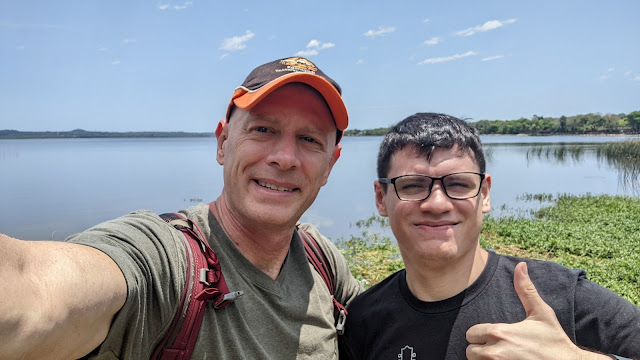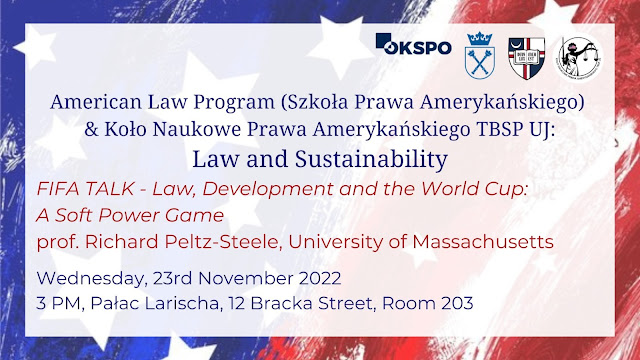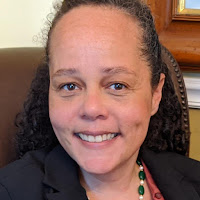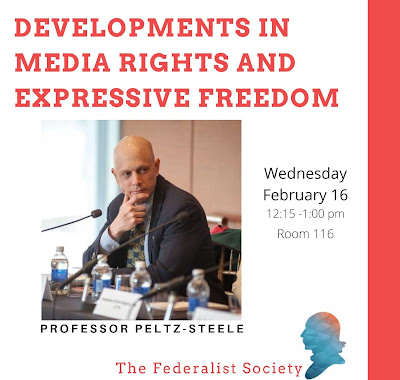He who learns teaches.
—widely cited as an Ethiopian or African proverb, the statement has parallels in other cultures and is sometimes paired with the Latin "qui docet discit," "he who teaches learns"
Because we are reasonable people, we can all agree that Torts is the most important course in law school.
Comparative Law, however, takes the cake as the best course to teach. That's because one can teach it without exhaustive knowledge of the doctrinal subject matter. For no one knows the law of every jurisdiction in the world.
Thus, for me and my co-teacher, a supremely skilled embedded librarian, Comparative Law is a never-ending opportunity to learn from our students. And our students in spring 2022, as in past semesters, had plenty to teach us.
This is a selection of the ambitious paper topics that our Comparative Law students tackled in the spring.
United States, Vietnam.
Firaas Z. Akbar, Free Enterprise Versus Freedom to Enterprise: A Comparative Analysis of Entrepreneurship Rights in the United States and Vietnam.
Despite pronounced cultural and ideological differences between the
republics of the United States and Vietnam, one of the goals shared by
both societies is promoting entrepreneurship among their citizens. While
not explicitly provided by the U.S. Constitution, free enterprise has
impliedly been read into its language through a series of judicial
decisions since the nation's founding, within a legal system where
courts are bound to follow precedent. Vietnam enshrined a broad right to
entrepreneurship into its constitution as part of an effort to
transition to a more market-friendly economy. Yet constitutionalism
under Vietnam's civil law system works differently, where rights require
legislative substantiation to take effect. This analysis explores how
Vietnam gives effect to this right and compares this model of promoting
entrepreneurship to the U.S. approach.
United Kingdom (pre-/post- Brexit), Switzerland.
Alessandro Balbo Forero, The Impact of Brexit on Football. There has been much debate and discussion regarding the UK exit from the European Union in 2020. Brexit had an impact on the sports industry as a whole, leading to debate and discussion by legal sport scholars on football, in particular, the English Premier League (EPL), and whether Brexit is good or bad. The unrestricted movement of players across the European Union is the catalyst for competition and player power. Prior to Brexit, players enjoyed the freedom of movement between EU Member States when their contracts expired. The current Governing Body Endorsement (GBE) requirements established after Brexit restrict player movement, and, thus, players are no longer able to sign with teams in the UK without first satisfying specific requirements that are tied to their respective countries' FIFA rankings. Although players are able to appeal to an exception panel, it is still not guaranteed to be granted a GBE. The Swiss model of player immigration would provide the UK with the best of both worlds. Brexit would still be in place, thus enjoying the benefits along with it, like unrestricted EU broadcasting regulations, and players would enjoy the freedom of movement once granted by the European Court of Justice in the
Bosman ruling. The Swiss model satisfies both the FA and EPL, because highly qualified, homegrown players would continue to be produced while maintaining the multicultural, global product that is the EPL.
United States, England.
Elizabeth Cabral-Townson, Using a Comparative Analysis of Special Education Disputes in the United States and England to Develop a Model that Better Serves Schools and Families. Every country with a formal public education system has a responsibility to meet the needs of all enrolled students, including those with disabilities. Many countries have developed laws or regulations that describe their special education processes and procedures. In some instances, parents and school districts disagree about what a student with a disability requires to make progress in school. In these instances, there are several different dispute resolution techniques that can be an efficient way to resolve issues. Both the United States and England have developed laws and regulations specifically related to special education disputes. There are both similarities and differences to how the United States and England handle special education disputes, and elements from each country may be used to develop a more universal model. A preferred approach may be a consistently used three-tiered system that ensures the timely resolution of special education disputes using no-cost or low-cost options.

United States, Norway.
Emma Clune, Prison Education as Means to Reduce Recidivism: A Comparative Analysis of the Effects of Prison Education Programs and Principles of Punishment in Norway and the United States. Access to prison education programs differs greatly between the United States and Norway. In the United States, prison education programs are not widely accessible due to issues such as lack of funding and resources. The programs that are available do not often prepare incarcerated persons for workplace environments after release. In Norway, where education is viewed as a fundamental right, all inmates are eligible to participate in education programs, and every prison facility provides access to academic and vocational programming. Norwegian prison education programs operate based on the "principle of normality," the idea that life inside prison should emulate life after release. Research confirms that participation in educational programming while incarcerated reduces an offender's likelihood of recidivating by improving the offender's mental health and increasing the likelihood of employment after release. Emulating Norway's prison education programs and adopting the principles of Norway's penal system could be a means to reduce high recidivism rates and ultimately decrease the rapidly growing prison population in the United States.

United States, Canada. Judith Patricia Cruz Caballero, A Comparative Analysis of Refugee Law in the United States and Canada. The United States and Canada are world-leading nations for their international law policies. Refugees are a group of the population displaced from their home country due to war, discrimination, or violence. The United Nations created the 1951 Refugee Convention and the 1967 Protocol Relating to the Status of Refugees to create a better humanitarian world. However, as the refugee crisis continue to increase over the next few years, the refugee policies of host nations will impact the support refugees receive. This paper examines refugees' procedures, immigration processes, and funding structures provided to refugees in both countries. In addition, the paper aims to compare each
nation's method of handling refugees in a time of international crisis. Finally, after analyzing each nation's policy areas, the paper provides recommendations to help increase the efficiency and effectiveness of refugee response in the United States and Canada.

Netherlands, Colorado.
Ryan Gulley, Comparing the Legalization of Drugs in the Netherlands and Colorado: Recommendations for the Future. This paper compares the similarities and differences between the recent implementation of changes regarding drug use within the legal systems of the country of the Netherlands and the state of Colorado. The paper begins with a brief introduction to both systems. Following the introduction is a brief history of the criminalization of drugs within the two systems, as well as the reason for the changes that have been made in response. The current landscape of the legal systems will then be laid out, including where society stands today. I then examine the effects of those changes. The paper concludes by providing recommendations based on the lessons learned from the changes that were made in both areas.
United States, European Union.
Austin Gutierrez, SOPA & PIPA vs. Article 17 "Directive on Copyright in the Digital Single Market." This paper compares the failed U.S. legislation, the Protect IP Act (PIPA) and Stop Online Privacy Act (SOPA), to the currently enacted Directive (EU) 2019/790, Directive on Copyright in the Digital Single Market, with a focus on Article 17. This paper goes through the history and then the past and current critiques of each legislation. This paper then creates a hypothetical bill using methodologies from both legislations. This paper has discovered that the current critics of U.S. online piracy protection believe that the U.S. should legislate in favor of website blocking. The EU critics believe that the authorization requirement establishes a mandatory requirement of general monitoring, which may be too much of a request from the website owners. In conclusion, this paper decides that it is in the best interest of the United States to let other nations develop and test online piracy protection while protecting current copyright holders through the use of website blocking for piracy focused websites.

United States, China, Germany.
Christopher Hampton, Comparative Analysis of Crypto Assets/Blockchain Regulation Between PRC & Germany to Form a Spectrum Based Guide for Impending U.S. Regulations. Crypto-assets and blockchain technology have created an array of regulatory responses globally, most of which address the risks associated with illicit activities, consumer protection, and financial stability. The choice of fitting crypto into traditional frameworks, modifying existing regimes, or forming bespoke regulations to address these risks inherently creates strategic variations across the board. However, this range of approaches creates a guiding spectrum for late movers, namely the United States, to survey during impending crypto-asset deliberations. By synthesizing Germany's and China's leading, yet antithetical, approaches to the same priorities, this paper reveals both sides of the spectrum (i.e., acceptance v. full ban), details how the respective strategies address the given concerns, and weighs perceived strengths and weaknesses of their enactments. Further, upon consideration of the United States' current regulatory uncertainty and objectives, recommendations are proffered in promotion of sustainable growth and innovation for the industry. Although the collective knowledge necessary for proper regulations is not solely within this analysis, adequate and sustainable decisions can only be made through considerations as equally expansive and flexible as the emerging industry of focus. Similarly limited, policymakers would be prudent to include market participants in their deliberations and promote international teamwork. Ultimately, regulatory clarity is necessary in any regard for the industry to truly evolve, though the path of evolution depends heavily on U.S. decisions.

Germany, Russia.
Nicholas Hansen, A Comparative Examination of Environmental Regulatory Policy Models in the Federal Republic of Germany and the Russian Federation. Regulation of the economic activities of any sovereign nation can be foundational in determinations of status, power, and recognition in modern geopolitics. In modern environmental regulation theory, two primary characterizations of economic regulations are found. This analysis compares the use of "process-integrated" environmental policy, to the use of "end-of-pipe" environmental policy, and their relative benefits and hindrances. Process-integrated regulatory policy involves a more direct intervention in production processes and business action, whereas end-of-pipe regulatory policy involves the establishment of penalties for businesses that exceed their allotted carbon output, and violate industrial or automotive emission laws. These policies have disparate impacts on the economic health of the sovereignties in which they are employed, differing levels of legal security for businesses operating in these sovereignties, and these impacts have been modeled and cataloged in this article.
This author posits that the time-frame around which either model is implemented, and the substantive form of these model regulations have an indirect impact on the long-term economic growth and propensity for foreign investment. This hypothesis is most principally demonstrated by a comparative examination of the "process-integrated" model presently in use by the Federal Republic of Germany, and the "end-of-pipe" model presently in use by the Russian Federation. This article seeks to explain the characterization of the German and Russian regulatory models as an "end-of-pipe" or "process integrated" model and the statistical and legal evidence that supports this conclusion. In addition, Explanations of the German and Russian environmental regulation and their relative impact on the economic health and growth of their respective sovereignties are given.
Israel, Palestine.
Rachel Kilgallen, The Unique Legal Systems of Israeli Settlements.
The Israeli-Palestinian conflict is one of the world's most enduring
conflicts, the Israeli occupation of the West Bank and the Gaza Strip
reaching 55 years. Within Israeli settlements, where Israelis and
Palestinians must coexist, an abounding number of controversies have
arisen. One such controversy revolves around the legal system adopted
within these settlements. Upon Israel's occupation of the West Bank and
Gaza (along with the Sinai Peninsula and Golan Heights) in June 1967,
the Israeli military immediately established military courts in both
territories in order to try offenses harming security and public order.
Technically speaking, Israeli military and civilian courts hold
"concurrent" jurisdiction to try Israelis for offenses related to
security. The policy for the last four decades, however, has been to
refrain from prosecuting Israeli civilians in the military system,
despite critiques that doing so constitutes partial annexation of
occupied territory. The result is that Israeli and Palestinian neighbors
accused of committing the very same crimes in the very same territory
are arrested, prosecuted, and sentenced in drastically different
systems—each featuring staggeringly disparate levels of due process
protections. The International community seems to be in concurrence that
Israel's actions regarding its settlements violate international law on
many levels. At this point in time, all measures taken against Israel,
in consequence, have been in vain. The longstanding conflict between
Israel and Palestine endures.

United States, Germany.
Samantha Rapping, The Psychological Toll of Being Prosecuted as an Adult: A Comparative Analysis of Juvenile Prosecution and Incarceration in the United States and Germany. The United States has one of the most complex criminal justice systems, which significantly differs from other systems in the world, specifically Germany. One prominent difference between these two countries is how they handle juvenile offenders. The United States focuses merely on punishment and incapacitation, whereas Germany focuses on education and rehabilitation. As a result of the harsh treatment that juvenile offenders endure, such as frequent sexual and physical abuse, their mental health severely plummets. Juveniles are at a higher risk for suicide, depression, and anxiety. As a consequence, juvenile offenders are likely to re-offend post-release. Germany’s recidivism rates are extremely low as a result of the educational approaches and opportunities that are available to juvenile inmates such as therapy, metalworking, farming, etc. The positive reinforcement that occurs while juveniles are incarcerated leads to an increase in a juvenile inmates overall attitude and positive outlook for the future. The United States should adopt Germany's educational approach to its juvenile offenders.
Students: If you spy any errors here, don't hesitate to contact me for correction. If you were in this class and I failed to include you here, that's because I don't have an abstract from you. Please send one, and I'll be happy to add it.
Publishers and employers: Contact me if I can help put you in touch with any of these promising law students, some of whom are now recent grads!
Flags from Flagpedia.net.
.jpg)








.jpg)
















